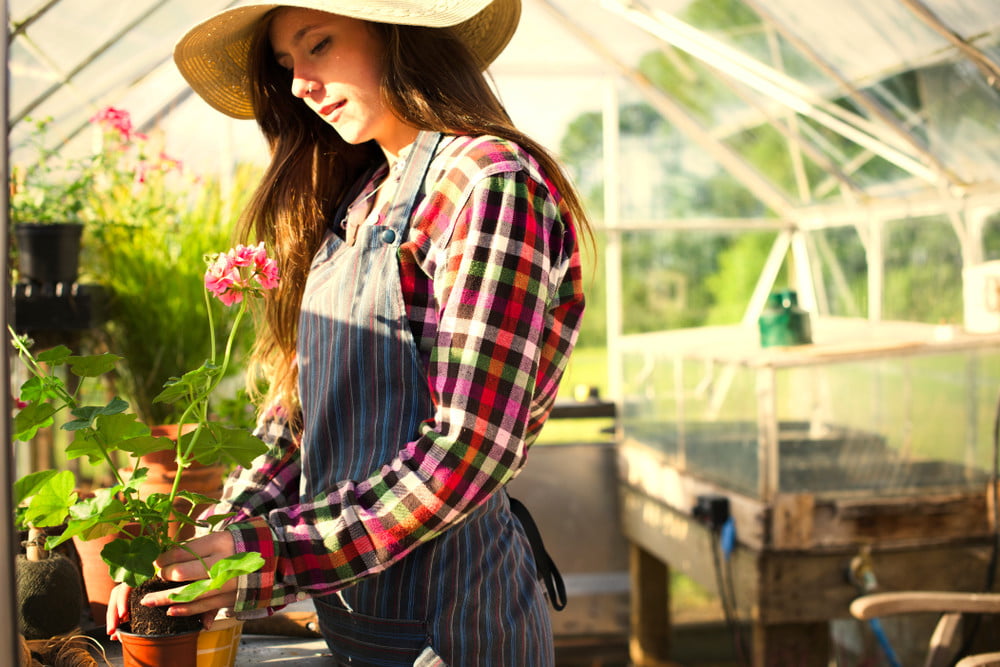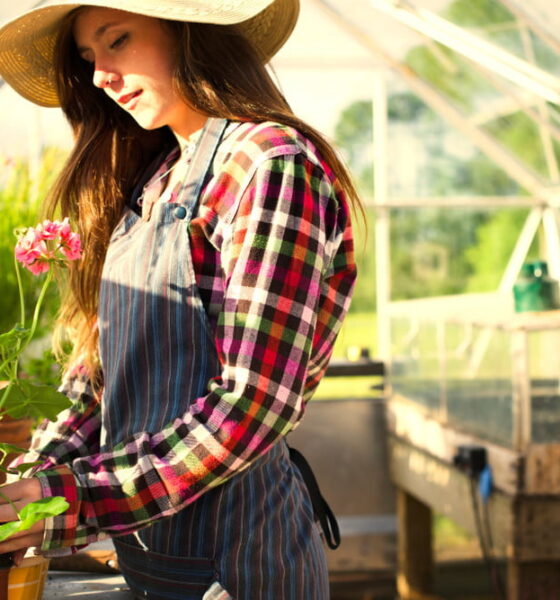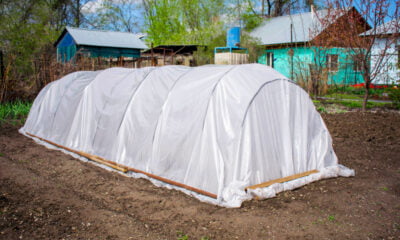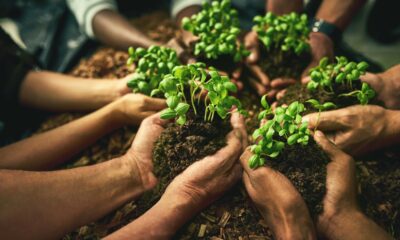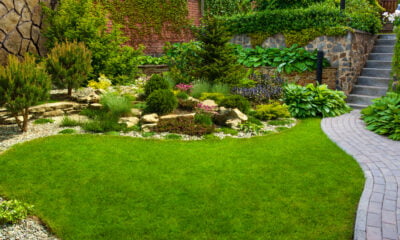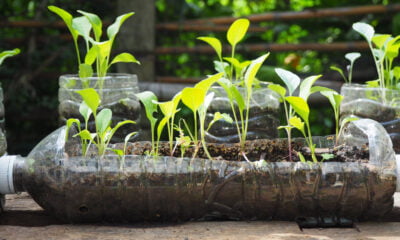Countless Americans desire to be more independent with their food, which is great for the environment. One study found that 35% of Americans grow their own food. This figure has increased 65% in the past decade.
This is good for the environment. US Green Technology has published an article on some of the environmental benefits of gardening.
Some of the environmental benefits of growing your own food are more obvious. Gardening produces plants that clean the air and cool the atmosphere. They also reduce your carbon footprint in more subtle ways, such as reducing the need for aggressive, environmentally reckless farming practices and minimizing the need to transport food.
Green living advocates are encouraged by the growth of people that are gardening. The figure would probably be even higher, except some people in the cities don’t realize it is possible to grow food themselves. The truth is that it is possible to be a green, urban gardener!
Growing Your Own Food the Eco-friendly Way
Are you thinking of living sustainably and growing your own food, but feel like you are confined in a small plot that has you doubting your ability to so? Well, we have good news for you.
It’s possible. Yes, even on that small space in your backyard!
While limited space can be frustrating to every urban gardener, it is still possible for you to grow your healthy natural food right in your backyard. You don’t need to own huge tracts of land to start backyard farming. Growing carrots, onions and rich colorful juicy strawberries is possible. Good news, huh?
Because… let’s face it.
The current food system is nothing but corrupt! The situation is so bad that organizations like the Centre for Research on Globalization have pegged Monsanto as the most evil company in the world. The food we are consuming is not only unsustainable but also unhealthy. Most of the severe health problems people are experiencing are caused or exacerbated by consuming highly processed foods and foods produced using chemical-intensive farming practices.
So if you are willing to escape the ugly part of our food system by growing your own organic, rich in nutrients food, you need to consider backyard farming.
Uhm… What is backyard farming?
A backyard farm is growing and rearing on a mini or micro piece of land, mostly within your neighborhood or backyard for personal consumption.
Backyard farming takes an active approach to farm crops organically, as opposed to buying crops that have been grown and preserved with chemicals. It’s more of taking deliberate action to grow your own nutritious vegetables and fruits and developing an organic and sustainable food system.
And, how much space is needed? Is it possible to grow this food without harming the environment?
You can start as small as a few containers on a balcony to a few acres on your backyard plot. In fact, a smaller area is much more manageable and productive. So, start with the current space you have. Start small.
What foods can I farm in my tiny plot?
Here are a few easy crops you can grow in your backyard without leaving a large carbon footprint.
Vegetables
Vegetables are the most sought-after plants in most urban farms. And it’s for a good reason. They save you the hassle of having to drive every few days to the grocery store to purchase veggies from questionable sources or highly overpriced “organic” ones.
Some of the vegetables you can try out are; kale, tomatoes, spinach, beets and peas.
Farming vegetables on small yards
- Container gardening
If you have a tiny yard or live in an apartment, consider container gardening. Container gardening is an excellent choice for people looking to save space or even do indoor farming. While vegetables require constant watering, container gardening saves you water, thus you don’t have to water very frequently.
- Vertical gardening
The current trend of urban farming is vertical gardening. You can create your own vertical garden using shelves, trellises or even hanging baskets. Just like container gardening, vertical gardens are water efficient and can do well even in a small space.
You can also try raised square beds. Square gardening offers better yields for small space gardens.
How to prepare your soil for urban organic
1. Conduct soil testing for better results
As an urban organic backyard farmer, if there is anything that can limit your plant’s growth its your soil being out of balance. In organic farming, the composition of nutrients in your soil matters a lot. It is important, therefore, that you have your soil tested for all-important soil properties and trace minerals.
2. Raise soil beds
Soil beds help in promoting good drainage in your backyard. Soil depth and management of your crops also become easier. A 30cm soil depth is adequate for your soil bed.
3. Use natural fertilizer
To further improve your soil composition, you need to add manure and organic fertilizers. Here are some of the organic soil additives you can use for the best results:
- Chicken manure
Add chicken manure at a rate of one handful chicken manure per square meter. Chicken manure is rich in nitrogen and phosphate. It also has good amounts of calcium and potassium. Alternatively, you can also add, sheep or cow manure supplemented with sulphate potash to boost levels of potassium in your soil.
- Blood and bone- This is rich in phosphate, nitrogen and trace minerals.
- Good quality compost
4. Mix thoroughly
Mix it all thoroughly with a fork to achieve an even mixture of compost and soil.
5. Add trace elements
For optimum productivity supply your vegetable crops with a diluted seaweed concentrate. Seaweed concentrate supplies your vegetable crops with a wide range of trace elements.
6. Cover your crops with mulch
Cover your crops with 2-3 inches of mulch.
7. Let it settle
Give your farm a few weeks to settle before you plant your vegetables. You can also be propagating your vegetable seedlings as you wait for the garden to settle.
Fruits, nuts and berries
An alternative to vegetables are fruits, nuts and berries. Here are some of the most common fruits you can grow in a small yard;
–Strawberries
These are a classic and a favorite for many backyard farmers. With proper care and attention can easily thrive in jars and containers.
- Grapes
Grapes are an easy crop to grow. However, you will face stiff competition from birds and animals when harvesting. They also need a trellis or some type of support to grow. Growing them on an arbor makes it easy to prune them and keeps them from outgrowing your small space.
- Blueberries
Blueberries require a bit of attention to soil acidity. However, when well maintained, the shrubs can live to produce year after year.
Animals
- Eggs
Almost every suburban farmer has considered chickens. Chickens can do great even in the smallest of plots. Alternatively, you can raise quails. Quails are quite small and quieter than chickens, making them a great option for cities that do not allow chickens.
- Meat
Chicken, quails and rabbits can be raised in small farms for meat. In larger farms, you can raise ducks, goats and sheep.
- Bees
With only a sturdy fence and a small space for a hive, you can rear honey bees in your backyard. Honeybees are less aggressive and can be kept in urban areas for providing honey, and beeswax. They are also helpful in pollination in your garden.
- Milk
Nigerian dwarf goats are a great source of nutritious milk for a small garden space. You can also use the milk to make your own yoghurt, cheese and even some delicious ice cream.
And… the list is endless.
No matter the crop or animal you choose to grow, be willing to dedicate your time and effort and the results will be worth it…
And don’t let the lack of space stop you. Be creative and just farm whatever works best for you and what you love to eat most. At the end, it all boils down to living a healthy sustainable lifestyle while saving money in the long run.
Making Gardening an Eco-friendly Practice
There are a lot of ways to grow your own food without harming the environment. You can follow these sustainable gardening practices even with a small backyard.

